“I was barely 12 when I saw an injured peacock dumped outside a temple. My heart broke seeing this majestic creature, which also happens to be our national bird, so helpless without food or water. With my father’s help, I took him to a veterinarian for treatment. A few days later, we released him in a nearby forest area. That incident changed my life and I decided to protect every peacock in our village,” says Narayan Singh Anjana, a farmer from Madhya Pradesh’s Jhabua district.
Now in his 50s, Narayan has saved the lives of around 1,000 injured peacocks in the last three decades, setting an exemplary example of co-existing with nature.
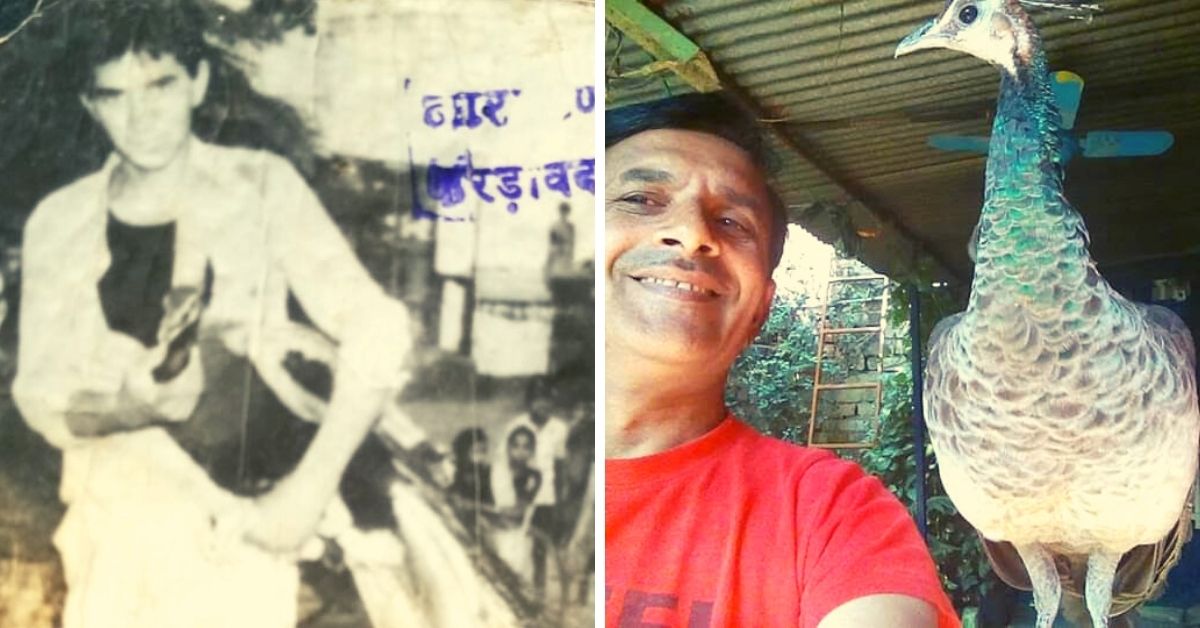
Narayan lives in Kardawad village in the Petlawad region, which is home to the largest peacock population in the state. Fortunately, poaching is restricted in Petlawad given that it is a major cause behind peafowl’s dwindling population in other parts of India. A couple of decades ago, when two outsiders tried to kill the bird, Kardawad villagers took action against them and since then no one has dared to pluck the peacocks’ feathers.
However, other problems plague the peafowls’ population, says Narayan.
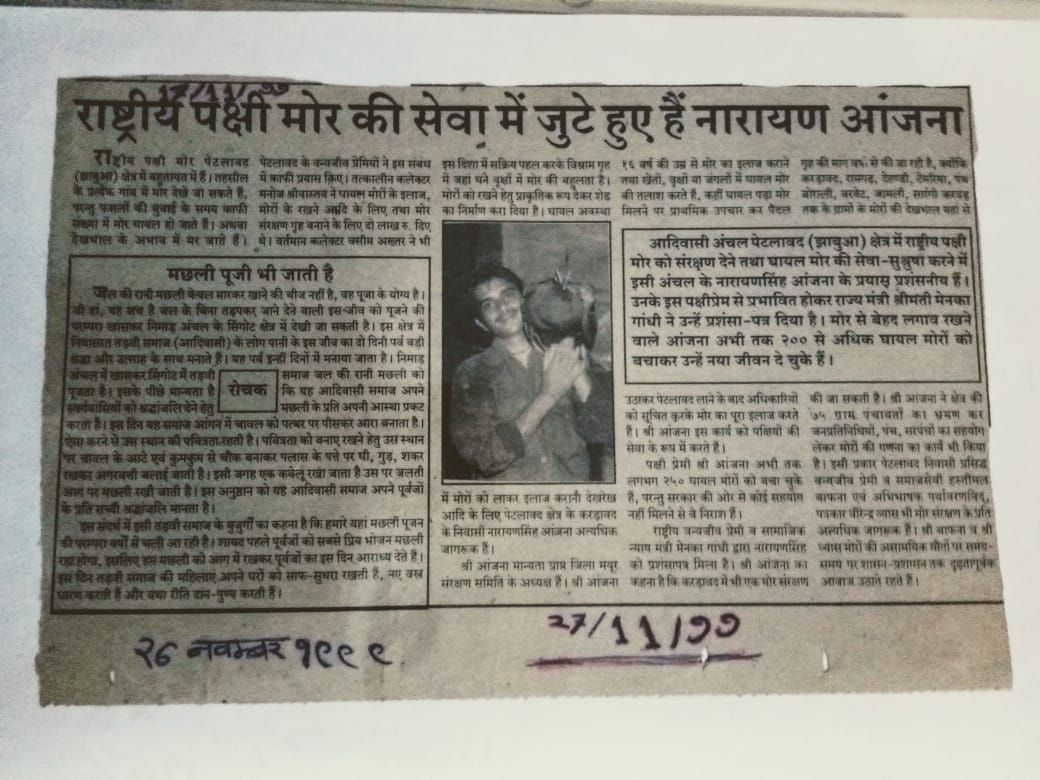
“From excessive chemical farming, lack of drinking facilities, stray dog attacks to electrocution, peacocks have been injured due to various reasons but nothing that we, villagers, cannot solve. The district administration and forest department have been very cooperative whenever I needed help. They even allotted money to build a boundary wall and peacock park close to a river. The project is in the implementation stage,” says Narayan.
‘Peacocks Are My Family’
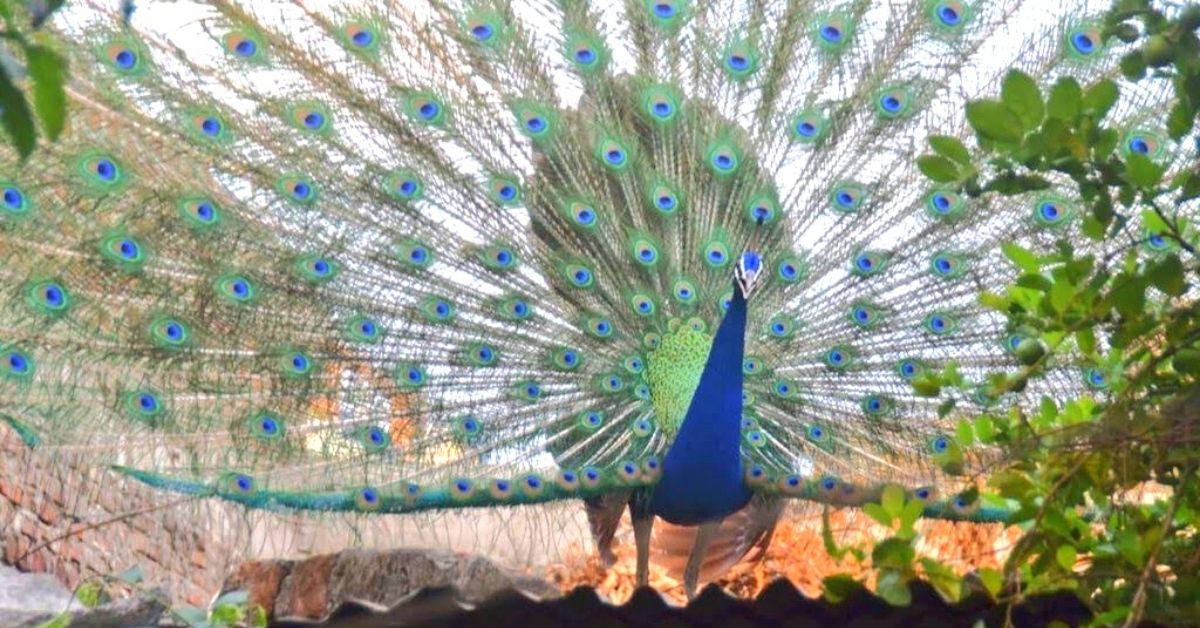
By now almost everyone knows Narayan, if not by name then as ‘Mor wala’. His dedication and love for peacocks is such that whenever people spot injured or weak peacocks, they take them to the Narayan household.
And he does not mind. In fact, he considers and treats every peacock like his “family”.
“Who wouldn’t want to see a peacock magically opening their wings while singing their sweet voice? Sometimes when you have something in abundance, people forget to value it. People here are like that where peacocks taking a stroll in the villages is a common sight. But they need to be tended to with love. Give them water and some grains and they will not bother you. I have taken the liberty to make sure they get what they need,” says Narayan.
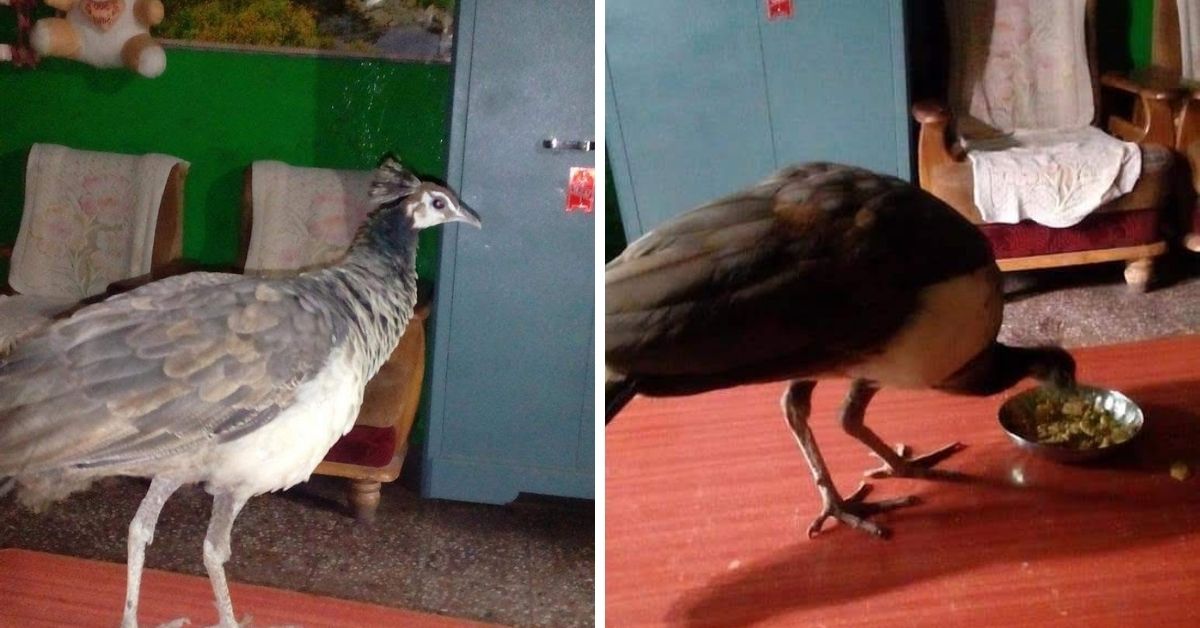
The emotional bond is such that he even had a peacock as a pet. Five years ago, a baby peacock was injured and Narayan took him to the veterinarian. He kept the peacock in his house for a couple of days before releasing him. However, the peacock found his way back to Narayan’s place.
“I was so touched that the peacock had chosen us as his family. We named him Gori. He recently passed away and we miss him terribly,” he adds.
Asked if his wife or children mind the birds’ presence in the house, he says, “My daughter, Monika has saved 15 peacocks and my wife always keeps some grains aside for the birds. They fully support me.”
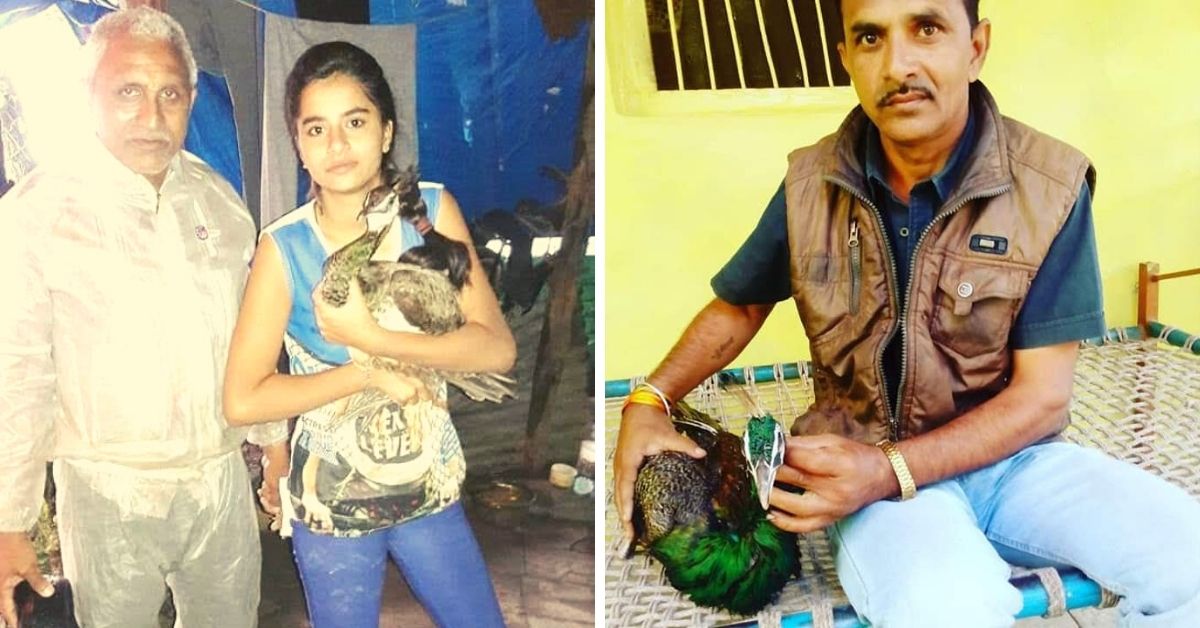
On any given day, 10-15 peacocks visit Narayan’s house for food or water. He has dug holes in his verandah to fill them with water. Earlier, he would buy 10 kilos of maize or wheat for the beautiful visitors but it was expensive. So, he started growing corn and wheat on his farm alongside other grains.
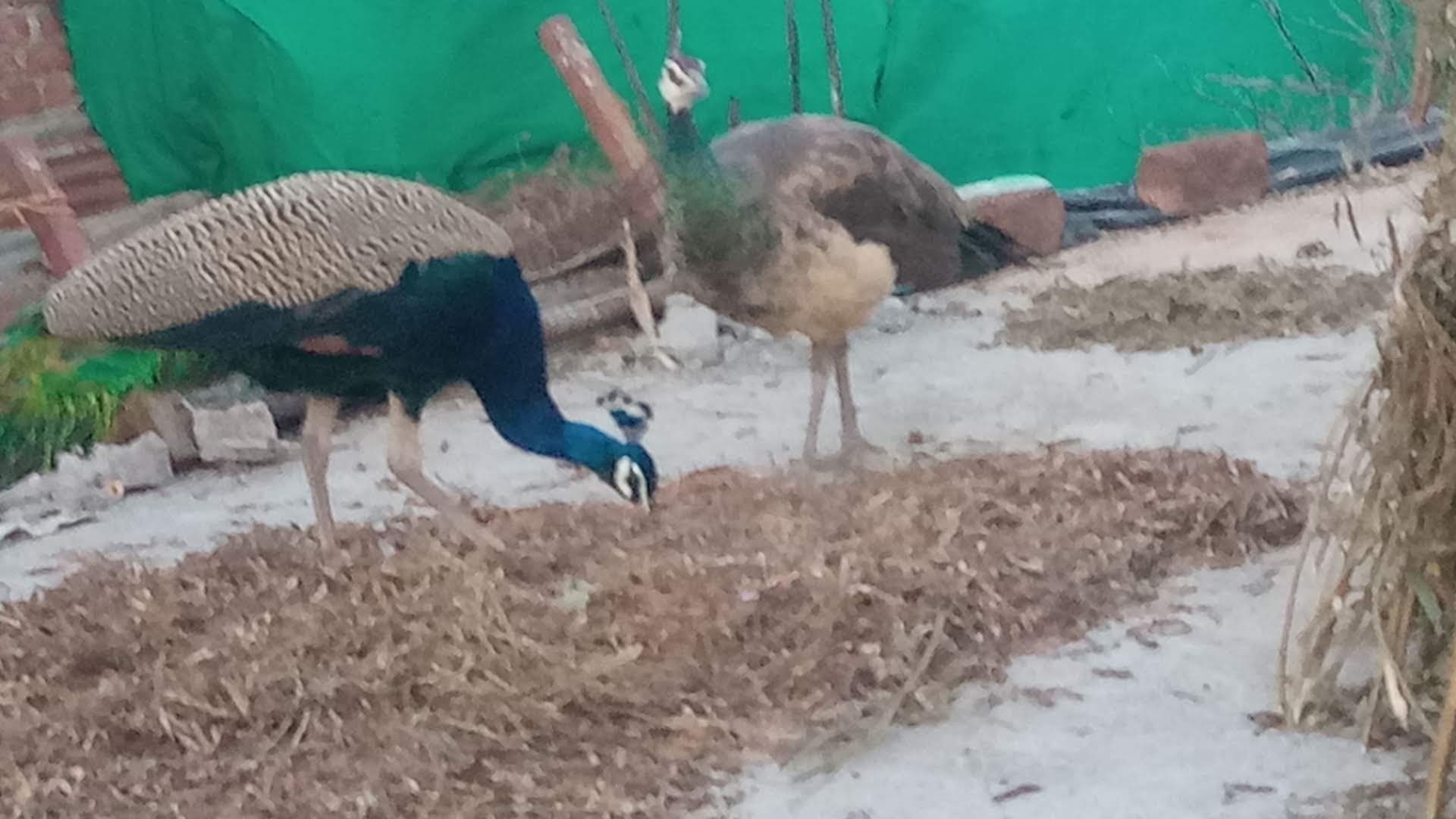
“Since I grow them myself, I go around the village and distribute it to other peacocks every day. I have even reduced the use of pesticides as it is harmful for the birds. On days I spray pesticides, I keep a strict vigil and don’t allow any peacocks to enter,” says Narayan.
Although the last peacock census in Jhabua was done in 2006, Narayan keeps a register of all the peacocks in the Petlawad region along with their health conditions.
Today, he says there are around 2,500 peacocks in the village.
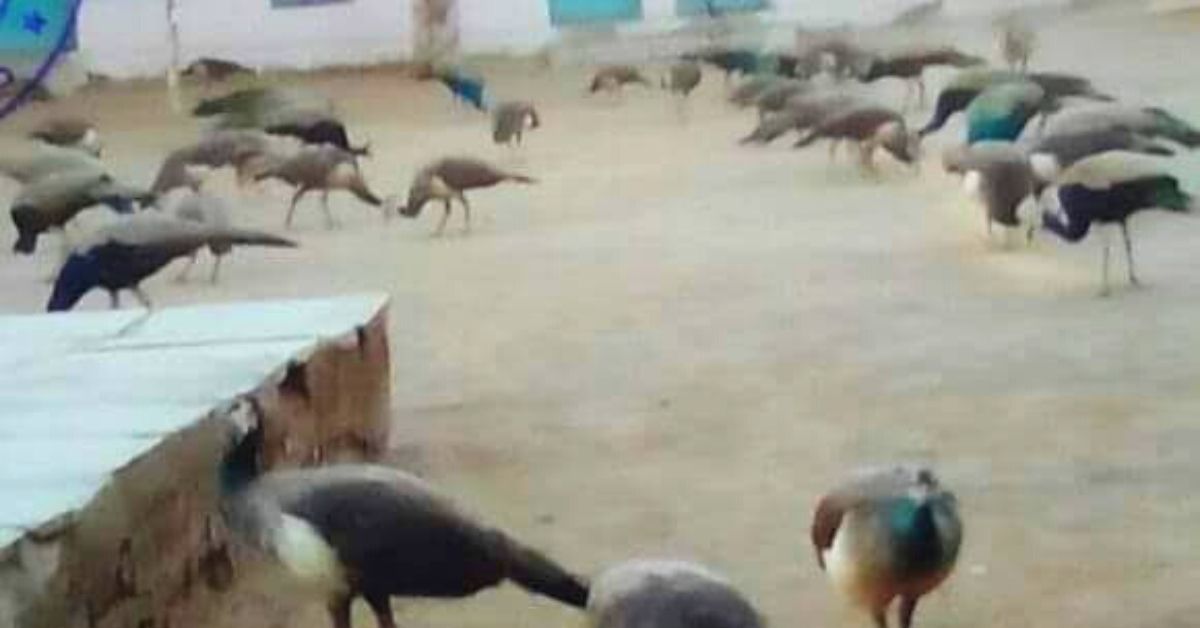
In a world where humans barely care or even notice the needs of birds and animals, here is a man who is tending to peacocks year after year, without any ulterior motive or demands. People like Narayan prove that one does not need to be a conservationist to help save a species. All you need is a strong will and to be empathetic.
Edited by Yoshita Rao
No comments:
Post a Comment